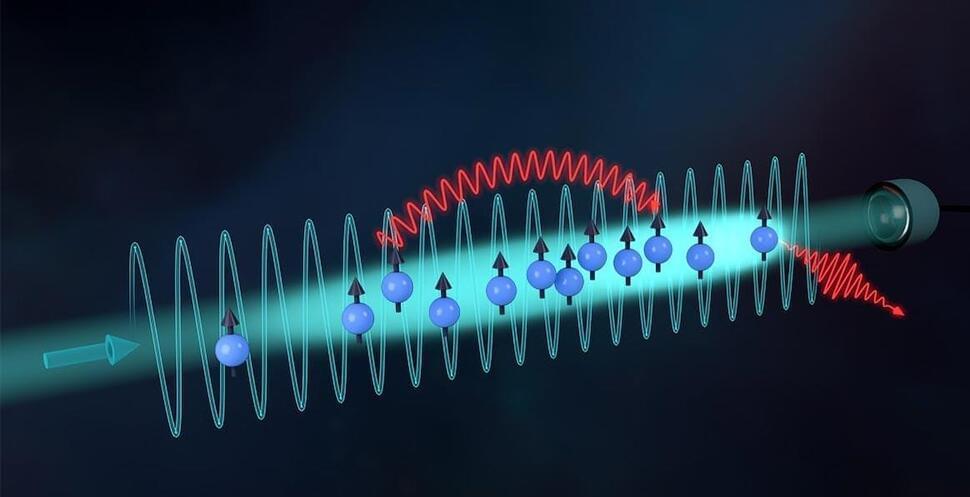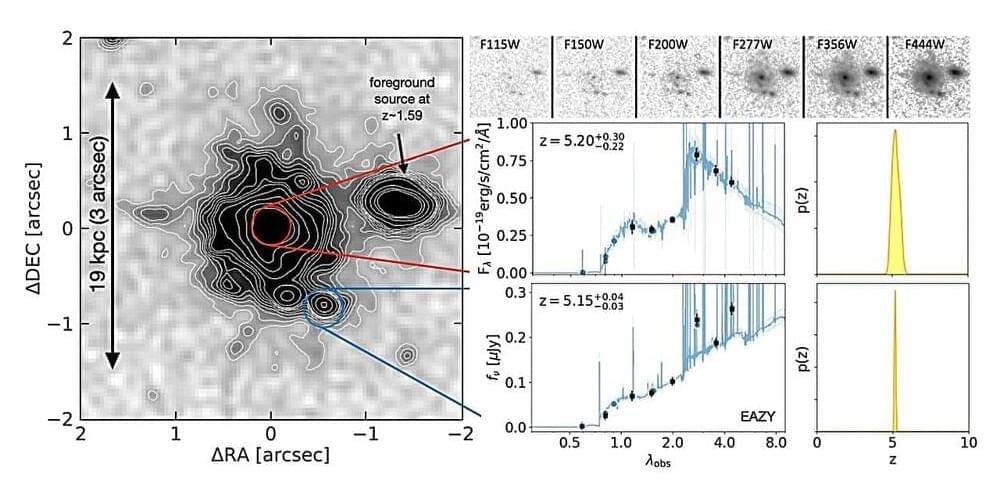A research team has succeeded in inserting a filiform molecule into the cavity of a ring-shaped molecule, according to a high-energy geometry that is not possible at thermodynamic equilibrium.



Read more.
Scientists have discovered that future robots might be able to gauge how you are feeling by just touching human skin. According to a new study published in the journal IEEE Access, researchers used skin conductance as a way to figure out how an individual was feeling. Skin conductance is a measure of how well skin conducts electricity, which usually changes in response to sweat secretion and nerve activity, signifying different human emotional states.
Traditional emotion-detection technologies such as facial recognition and speech analysis, are often prone to error, especially in suboptimal audio-visual conditions. However, scientists believe that skin conductance offers a potential workaround, providing a non-invasive way to capture emotion in real-time.
For the study, the emotional responses of 33 participants were measured by showing them emotionally evocative videos and measuring their skin conductance. The findings revealed distinct patterns for different emotions: fear responses were the longest-lasting, suggesting an evolutionary alert mechanism; family bonding emotions, a blend of happiness and sadness, showed slower responses; and humour triggered quick but fleeting reactions.


Superradiance in optical cavities involves atoms emitting light collectively when interacting with cavity photons, a phenomenon not yet observed in free space due to synchronization challenges.
Researchers have used theoretical simulations to probe these effects under various conditions, revealing significant differences in behavior between cavity and free-space systems.
Superradiance in Optical Cavities.

Physicists uncovered a fascinating link between the Large Hadron Collider and quantum computing. They found that top quarks produced at the LHC exhibit a property called “magic,” essential for quantum computation.
This discovery could revolutionize our understanding of quantum mechanics and its applications, bridging the gap between quantum theory and particle physics.
Quantum Computing and the Power of “Magic”


Join us on Patreon! https://www.patreon.com/MichaelLustgartenPhD
Discount Links/Affiliates:
Blood testing (where I get the majority of my labs): https://www.ultalabtests.com/partners/michaellustgarten.
At-Home Metabolomics: https://www.iollo.com?ref=michael-lustgarten.
Use Code: CONQUERAGING At Checkout.
Clearly Filtered Water Filter: https://get.aspr.app/SHoPY
Epigenetic, Telomere Testing: https://trudiagnostic.com/?irclickid=U-s3Ii2r7xyIU-LSYLyQdQ6…M0&irgwc=1
Use Code: CONQUERAGING
NAD+ Quantification: https://www.jinfiniti.com/intracellular-nad-test/

Texas Instruments has announced a tranche of federal CHIPS Act funding worth up to $1.6 billion, a show of support for a semiconductor manufacturing industry that’s becoming more entrenched in North Texas.
Texas Instruments also expects to receive somewhere between $6 billion and $8 billion in U.S. Treasury tax credits for manufacturing investments, and up to $10 million to boost workforce development.
All told, the money will assist in funding three new Texas Instruments plants: two based in Sherman and one in Lehi, Utah, creating 2,000 new jobs. Separately, Samsung will receive as much as $4.75 billion in CHIPS Act money, a figure Bloomberg notes was below what was originally envisaged.

Using the James Webb Space Telescope (JWST), an international team of astronomers has detected a new grand-design spiral galaxy as part of the PANORAMIC survey. The newfound galaxy, named Zhúlóng, is extremely massive and appears to be the most distant spiral galaxy identified so far. The finding was detailed in a paper published December 17 on the pre-print server arXiv.